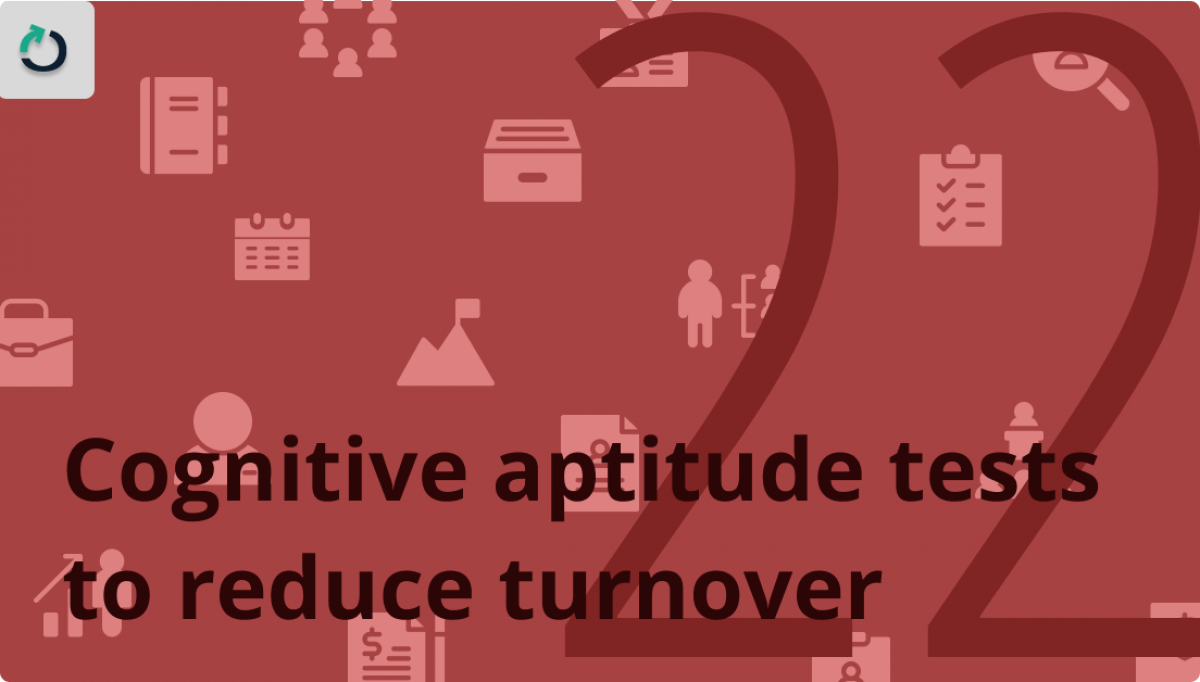Cognitive aptitude tests are an important tool for companies looking to reduce employee turnover. These tests measure a candidate's ability to learn, think critically, and solve problems, which are essential skills for success in many jobs. By using cognitive aptitude tests as part of the hiring process, companies can gain a better understanding of a candidate's abilities and potential, which can lead to better hiring decisions and reduced employee turnover.
One of the key ways in which cognitive aptitude tests help reduce employee turnover is by improving the fit between the employee and the job. Companies that use cognitive aptitude tests are more likely to make better hiring decisions, which can result in increased job satisfaction and lower turnover. This is because cognitive aptitude tests provide a better understanding of a candidate's potential and fit for the job, reducing the risk of making a poor hiring decision. For example, a candidate who scores high on a cognitive aptitude test may be a good fit for a job that requires problem-solving, decision-making, and critical thinking skills, but may not be a good fit for a job that requires more manual labor.
Another way in which cognitive aptitude tests help reduce employee turnover is by identifying individuals who have the innate ability to learn and succeed, even if they do not have a lot of experience or education in the field. For example, cognitive aptitude tests can identify recent graduates or individuals who are looking to switch careers who have the potential to succeed, even if they do not have a lot of experience in the field. By identifying these individuals early in the hiring process, companies can provide them with the necessary training and development to succeed in their roles, which can lead to increased job satisfaction and lower turnover.
Cognitive aptitude tests can also help companies to identify employees who may be at risk of leaving the company. For example, if an employee scores low on a cognitive aptitude test, it may indicate that they are not a good fit for their current role or that they are not being challenged enough. By identifying these employees early, companies can provide them with additional training or development opportunities, or consider reassigning them to a role that better matches their abilities, which can help to reduce the risk of turnover.
Finally, cognitive aptitude tests can help companies to reduce turnover by providing a quick and efficient way to assess a large pool of candidates. This can be particularly useful for companies that receive a large number of job applications, as it allows them to quickly identify the most promising candidates, saving time and resources.
In conclusion, using cognitive aptitude assessments, like Merreo Pre-hiring tests, plays an important role for companies looking to reduce employee turnover. By providing a better understanding of a candidate's abilities and potential, cognitive aptitude tests can help to improve the fit between the employee and the job, identify individuals with the innate ability to learn and succeed, identify employees at risk of leaving the company, and provide a quick and efficient way to assess candidates. However, it is important to remember that cognitive aptitude tests are only one aspect of the hiring process, and should be used in conjunction with other selection methods, such as interviews, work samples, and reference checks, to get a comprehensive picture of a candidate's abilities and potential.





